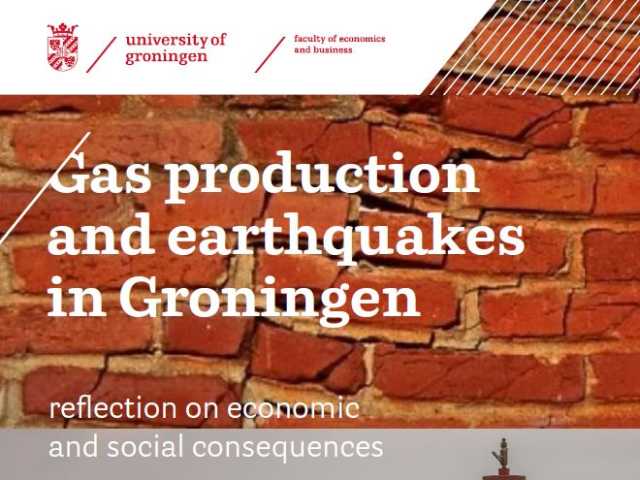End to gas extraction in Groningen means opportunities

In their report entitled ‘Gas production and earthquakes in Groningen. Reflection on economic and social consequences’, University of Groningen researchers Machiel Mulder and Peter Perey conclude that the government’s announcement of its intention to stop extracting gas from the Groningen gas field altogether opens up opportunities for the region to develop alternative energy solutions. They believe that Groningen’s wide-open spaces, its proximity to the sea and the presence of an energy knowledge infrastructure place it in a strong position to take the lead in energy transition.
Together with Groningen-based colleagues Bert Scholtens, George de Kam and Goda Perlaviciute, Mulder and Perey studied Groningen’s role in gas production and the impact of the earthquakes on local residents and the region’s housing market. Gas extraction in Groningen will be one of the themes at the International Association for Energy Economics (IAEE) international conference that will take place from 10 to 13 June at the University of Groningen.
Gas-free future?
The Netherlands won’t suddenly become a gas-free nation just because we stop extracting gas in Groningen, Mulder says. That will only happen if all our gas users switch to other energy sources. Unless and until they do, all it will mean is that the Netherlands will have to import more gas.
Minimal impact on gas prices
Mulder and Perey do not expect the fall in gas production in Groningen to have much impact on gas prices, due to the strongly integrated European gas market. ‘The scaling down of gas extraction might possibly make itself felt in higher prices during particularly cold spells. But in recent years, the Groningen field has only very occasionally served as a buffer for the higher gas demand in winter’, Mulder says.
One problem he does envisage relates to the fact that many households can only use ‘Groningen-quality’ gas. ‘We will need to find the capacity to convert gas from abroad to Groningen-quality gas, by which I mean gas with a lower energy content,’ Mulder explains.
Falling house prices
According to Bert Scholtens’ calculations, the Dutch state will forego around € 25 billion in revenue when gas extraction in Groningen stops. What’s more, settling earthquake damage claims will continue to be a major expense item for years to come. George de Kam concludes that the state has already spent about € 1.5 billion over the last few years on settling people’s claims for damage to their homes, but also on compensating people for the decline in the value of homes in the region. He estimates that the earthquakes have led to a fall in house prices of between 2 and 4%.
Stress and social unrest
Research carried out by Goda Perlaviciute has revealed that the earthquakes and the government’s handling of them have given rise to considerable stress and social unrest. The crux of the problem appears to be people’s sense of powerlessness. They have no influence over whether extraction takes place or the compensation for damages they receive, and the repair of the actual physical damage to their homes invariably ends up being a laborious and protracted process.
More information
Contact: Machiel Mulder, UG-Professor of Regulation of Energy Markets
Download the full report: ‘Gas production and earthquakes in Groningen. Reflection on economic and social consequences’
From 10 to 13 June, the University of Groningen’s Centre for Energy Economics Research (CEER) will be hosting the 41st International Association for Energy Economics (IAEE) international conference.


